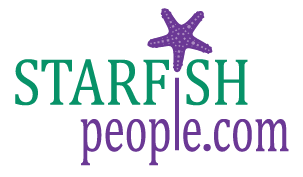Office parties, employers, and employees either love them or loathe them, but they remain a feature of most people’s employment.
They range from a small social gathering in the pub after work at the end of a stressful day to the full-blown Christmas party where the alcohol flows freely all night. Unfortunately, while many employees will use it to let their hair down completely harmlessly, the office party may represent trouble for a small minority.
Vicarious liability
Employers need to be proactive in ensuring acceptable conduct as they could find themselves vicariously liable for the actions of their employees if those actions are deemed to have been committed “in the course of their employment”, whether they were done with the employer’s knowledge or approval.
If a social event can genuinely be classed as an extension of employment, the employer might find that it is held vicariously liable for either acts of discrimination or acts of negligence committed by its employees at the event. This would include incidents at office parties, client functions, work conferences, and work-organised social events such as leaving parties.
The employer’s defence
Under the Equality Act 2010, there is a defence for an employer if it can prove that it took all reasonable steps to prevent the employee from doing the discriminatory act complained of, or from doing acts of that description in the course of their employment.
With negligence, if the employer can show that a particular act was expressly prohibited, this should also help its case.
The key for employers is to take sufficient steps to minimise the risk of being held vicariously liable. Employers need to be proactive to prevent these types of incidents from happening, since many employees may be unconcerned about the consequences of their behaviour.
Throwing up, throwing food and throwing punches may be seen as perfectly acceptable by some employees, but this kind of behaviour needs to be carefully regulated.
Policy on conduct at work-related social events
In advance of office parties, employers should provide clear written guidelines to members of staff to set out the standard of behaviour expected of them at such events.
The policy should highlight what behaviour is considered inappropriate and unacceptable and what the disciplinary penalties will be for breach of the rules, including possible summary dismissal if the offence is one of gross misconduct.
Although it is probably unreasonable to expect employees at an office party to remain completely sober, the policy should state that alcohol should be consumed in moderation and that staff should behave in an appropriate, mature and responsible manner. Unacceptable behaviour that might result in a gross misconduct dismissal would include excessive drunkenness, the use of illegal drugs, unlawful or inappropriate harassment, violence, serious verbal abuse, or assault of either another employee or a third party such as a guest or a member of the waiting or bar staff.
Monitoring during the event
At the event itself, employers should make sure that two or more managers are designated to take responsibility for monitoring the activities of members of staff and their intake of alcohol. These managers should work with the hotel, pub, or serving staff to ensure that employees who have had too much to drink are refused further service.
They must also be prepared to take employees to one side and warn them that they are behaving inappropriately or that they have had too much to drink so must not order any further alcohol. They might even have to be prepared to ask an employee to leave.
Employers will not have much of a defence if they have turned a blind eye to an employee’s becoming completely inebriated or indeed if they have even encouraged it by providing a free bar. It is a sensible option for them to limit the amount of free alcohol provided.
Edited from an original by Claire Birkinshaw
If you’re looking for advice or support on this subject. You can now book a free 30-minute consultation with Helen.
To book your consultation complete our secure contact form

Alternatively call us direct on 01243 607357, or email [email protected]


